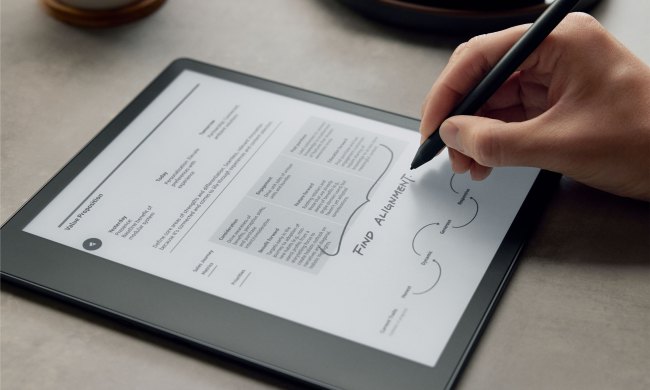File this one under “What companies learn from my online behavior.”
A recent analysis of book-buying behavior turned up interesting differences in the books people choose based on the format in which they read them. Kindle readers don’t buy the same types of books as people who buy traditional print books, according to Thinknum.
Thinknum analyzed Amazon‘s top-selling Kindle and print books in March 2018. The results revealed that if you bought books in the Kindle ebook format, odds are you love thriller novels. If you were a print book buyer, however, you were more likely buying self-help books.
Thinknum’s Joshua Fruhlinger notes that some print book novels and self-help Kindle titles sold, but most book sales aligned with the predominant formats.
Top sellers in March for each category included Jordan B. Peterson’s 12 Rules for Life: An Antidote to Chaos for print books and Say You’re Sorry, a legal thriller by Melinda Leigh for Kindle titles.
Breaking down Amazon’s top ten best-sellers among Kindle ebooks in March, nine were novels. The single non-fiction exception on the Kindle best-selling list was Harold Schechter’s Hell’s Princess: The Mystery of Belle Gunness, Butcher of Men. Based on the book’s description, even though it’s not thriller fiction, the book is about as close to that genre as you can get:”The chilling true account of one of the twentieth century’s most prolific female serial killers.”
Amazon’s best-selling physical or print books in March, as reported by Thinknum, had greater diversity than the ebooks. The ten print-book best-sellers included four self-help titles, three works of fiction, two children’s books, and one reference work.
Explaining the variety of print book sales types, Fruhlinger suggested that parents buy print books with colorful pictures to show when they read to children. The single reference book, Player’s Handbook (Dungeons & Dragons), a role-playing game (RPG) player’s guide, is filled with full-color illustrations.
The reason self-help book buyers preferred print editions was not clear, particularly since they were all available in Kindle versions. Fruhlinger noted several of the top print self-help titles were recent releases that might have had discounted pre-order prices.
The bottom line from Fruhlinger’s study of the Thinknum data: “Kindle readers love fiction.”


